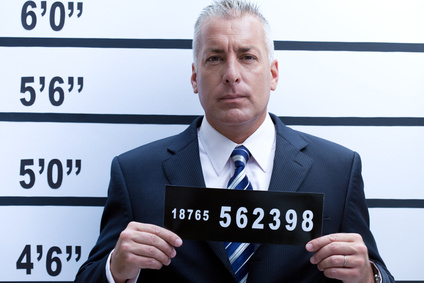In the latest part of this long saga about big rigging of the London Interbank Offering Rate (LIBOR) that began in the early-1990s, eight of the world’s largest banks have agreed to pay a little over $2 billion to settle charges that their traders rigged the world’s largest benchmark for their own benefit.

The banks involved in this round are Barclays, Bank of America, BNP Paribas, Citigroup, Goldman Sachs, HSBC, Royal Bank of Scotland Royal Bank, and UBS, according to CNBC.
In May 2015, five institutions, including JPMorgan Chase and Citigroup were fined roughly $5.7 billion combined, and four pleaded guilty to U.S. criminal charges over the currency market misconduct, authorities said Wednesday. A fifth bank UBS, plead guilty to rigging benchmark interest rates, the U.S. Justice Department said.
The scope of this astounding price-fixing scam—some $300 trillion worth of securities are pegged to the LIBOR interest rate and affect billions of borrowers, even though most people have never heard of it—should translate into a no-faith vote in the world’s largest banks.
But given the global scope of this fraud, these banks who are “too-big-to-fail” and received billions in taxpayer aid as a result of the systemic mortgage fraud that unraveled in 2008, continue to get the proverbial “get-out-of-jail-free” card as they just reach settlements with national regulators in the U.K. and the U.S. that will be passed along to unsuspecting shareholders and the public.
This fraud was so huge and casual that it should rank as the first instance when corporations became non-violent psychopaths, but psychopaths nonetheless. Traders who knowingly engaged in the fraud did so for money, favors, a bottle of Bollinger champagne, and even day-old sushi rolls, according to a report in Rolling Stone.
This is quite a system and gives a new definition to risk management: heads I win, tails you lose, as bank executives go free from any recrimination, while lower-level traders take the hit. (This is a continuation of the old story in which the driver of the get-away car gets caught, sentenced first, and receives the harshest sentence of the group.) Yet for the bank execs, this is a nice justice system that evades millions of average citizens worldwide.
This fraud also has another twist that other criminal enterprises often don’t have: it is largely a non-issue with the corporatist financial media.

The best evidence of this is Larry Kudlow, the corporatist economist for CNBC who has astoundingly said the LIBOR rigging did not create any victims. Kudlow routinely promotes anti-regulation, anti-global warming, anti-Obama, anti-tax, and anything which remotely interferes with “free markets,” but he does not see anything wrong with global bid rigging, as long as it is done by corporations.
That should be news to the many municipalities and individuals who have sued the banks to recoup actual monetary losses based on the bid-rigging, as cited in the Rolling Stone article. Yet Kudlow is beyond embarrassment, even though others would have lost their jobs for making an inane statement on the air. Yet for some reason, CNBC tolerates him.
The Fraud is Nothing Personal
But as we suspected, what’s missing from this story is individual accountability.
So far, the only trader who has been (sentenced in August 2015) was Tom Hayes, a 35-year-old middle-level trader in London who received 14 years. Hayes worked at UBS Group AG and Citigroup.
According to Bloomberg, Hayes was named the “ringmaster” of a global network of 25 traders, and brokers from at least 10 firms pushed LIBOR rates their way. To do this, he used bribery, bullying, and incentives to his co-conspirators to tilt the interest rate. LIBOR is used to price more than $350 trillion of financial contracts that include mortgages, credit cards, and student loans, Bloomberg reported.
Interestingly, Hayes is named as “ringleader,” yet he said he was only involved from the summer of 2006 until his firing by Citigroup in September 2010. Yet the fraud was conducted since the early- to mid-1990s, well before Hayes’ involvement. So does this mean those more veteran criminals get a pass? Or, have they moved into the corner offices as a result of their involvement?

The public also should also be suspicious that only a few non-executives have been hauled into court. According to Erin Arvedlund, author of the book Open Secret, which details the LIBOR scandal, “I was surprised at how young and low-ranking the traders on trial were, and how these young men and women were so quickly sacrificed by the top brass.
“In the cases of Barclays, UBS, Rabobank, and Deutsche Bank, the CEOs argue ignorance of what was going on in the rank-and-file, when in fact, they tolerated or even encouraged the rigging of interest rates if it was bringing in revenue, especially UBS and Deutsche Bank. The tiny Dutch firm Rabobank was among the worst offenders. In the case of Lloyds, they’ve suspended a young woman on the money-market desk. Can we honestly believe this was the work of one person?”
Certainly not.
In Great Britain, where the other part of the LIBOR rigging investigation is unfolding under the scope of the U.K. Serious Fraud Office, more indictments against individuals are expected since the bid-rigging certainly was not done by one man or even a dozen.
Meanwhile, back in the U.S., the white-collar criminal prosecution custom is that pursuing individuals is outside of the law. As for the administration of justice, author Arvedlund, had another insight: “I was shocked at how chummy the Bank of England, the Federal Reserve and the heads of the big banks were – and are. Who is regulating whom?”
But that is a leading question.
When it comes to regulating the financial services industry, appearances are everything, but the tail still wags the dog on both sides of the Atlantic. In actuality, this means the banks are not only above the law, they write the laws.











